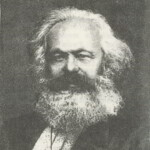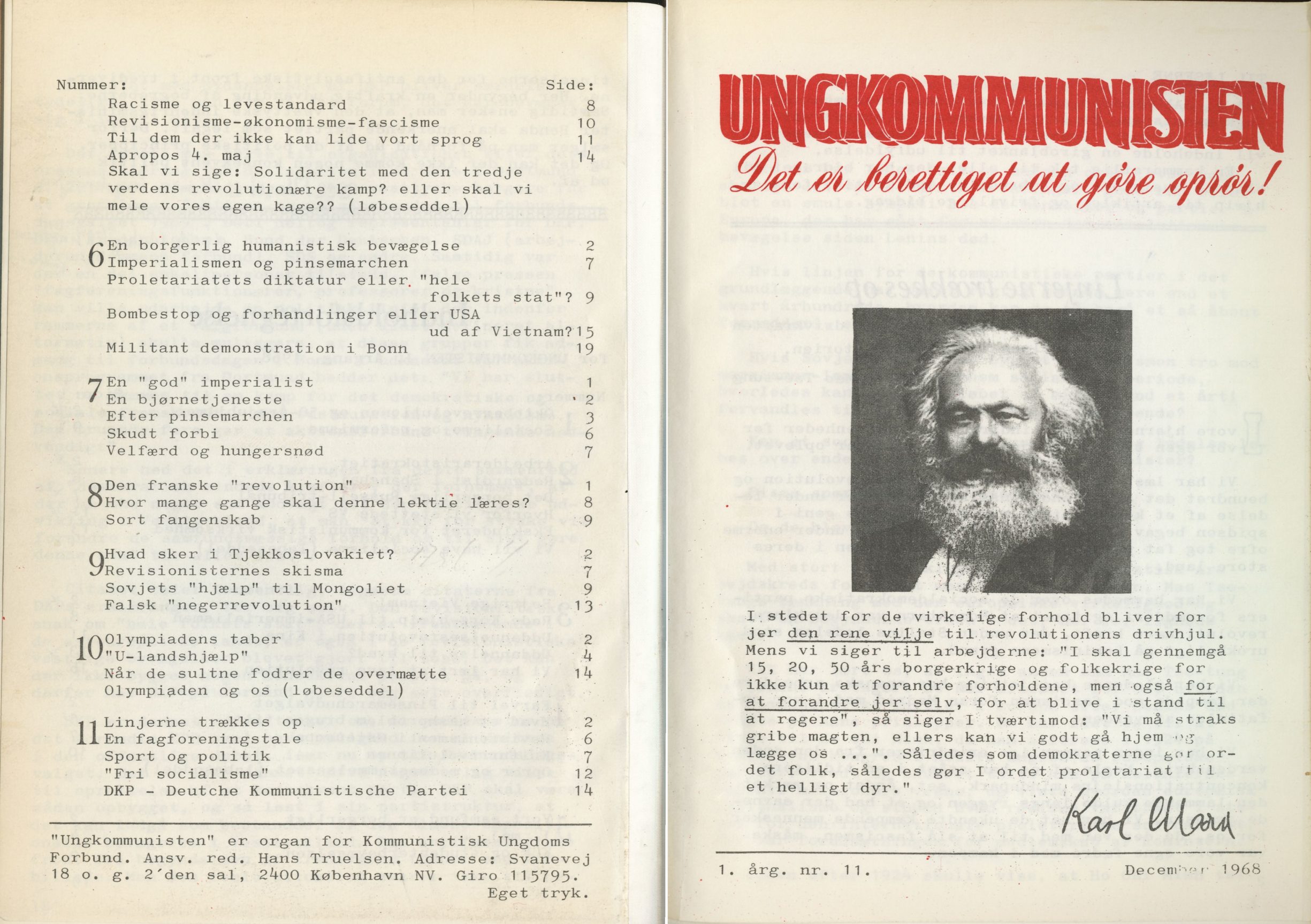Chapter XXXI – Genesis of the Industrial Capitalist
About the text:
From: On Colonies, Industrial Monopoly and Working Class Movement, Futura, 1972, 57 p., p. 26-28.
(Extract)
Capital Vol. 1 published in 1867.
… The discovery of gold and silver in America, the extirpation, enslavement and entombment in mines of the aboriginal population, the beginning of the conquest and looting of the East Indies, the turning of Africa into a warren for the commercial hunting of black-skins, signalised the rosy dawn of the era of capitalist production. These idyllic proceedings are the chief momenta of primitive accumulation. On their heels treads the commercial war of the European nations, with the globe for a theatre. It begins with the revolt of the Netherlands from Spain, assumes giant dimensions in England’s Anti-Jacobin War, and is still going on in the opium wars against China.
The different momenta of primitive accumulation distribute themselves now, more or less in chronological order, particularly over Spain, Portugal, Holland, France, and England. In England at the end of the 17th century, they arrive at a systematical combination, embracing the colonies, the national debt, the modern mode of taxation, and the protectionist system. These methods depend in part on brute force, e.g., the colonial system. But they all employ the power of the State, the concentrated and organised force of society, to hasten, hot-house fashion, the process of transformation of the feudal mode of production into the capitalist mode, and to shorten the transition. Force is the midwife of every old society pregnant with a new one. It is itself an economic power. …
The English East India Company, as is well known, obtained besides the political rule in India, the exclusive monopoly of the tea-trade, as well as of the Chinese trade in general, and of the transport of goods to and from Europe. But the coasting trade of India and between the islands, as well as the internal trade of India, were the monopoly of the higher employés of the company. The monopolies of salt, opium, betel and other commodities, were inexhaustible mines of wealth. The employés themselves fixed the price and plundered at will the unhappy Hindus. The Governor-General took part in this private traffic. His favourites received contracts under conditions whereby they, cleverer than alchemists, made gold out of nothing. Great fortunes sprang up like mushrooms in a day; primitive accumulation went on without the advance of a shilling. The trial of Warren Hastings swarms with such cases. Here is an instance. A contract for opium was given to a certain Sullivan at the moment of his departure on an official mission to a part of India far removed from the opium district. Sullivan sold his contract to one Binn for £40,000; Binn sold it the same day for £60,000, and the ultimate purchaser who carried out the contract declared that after all he realised an enormous gain. According to one of the lists laid before Parliament, the Company and its employés from 1757-1766 got £6,000,000 from the Indians as gifts. Between 1769 and 1770, the English manufactured a famine by buying up all the rice and refusing to sell it again, except at fabulous prices. …
Colonial system, public debts, heavy taxes, protection, commercial wars, etc., these children of the true manufacturing period, increase gigantically during the infancy of Modern Industry. …
Tantæ molis erat, to establish the “eternal laws of Nature” of the capitalist mode of production, to complete the process of separation between labourers and conditions of labour, to transform, at one pole, the social means of production and subsistence into capital, at the opposite pole, the mass of the population into wage-labourers, into “free labouring poor,” that artificial product of modern society. If money, according to Augier, “comes into the world with a congenital blood-stain on one cheek,” capital comes dripping from head to foot, from every pore, with blood and dirt.
—–
KMC Vol. 1, p. 751-760.
The complete text can be found online at Marxist Internet Archive, MIA.



























